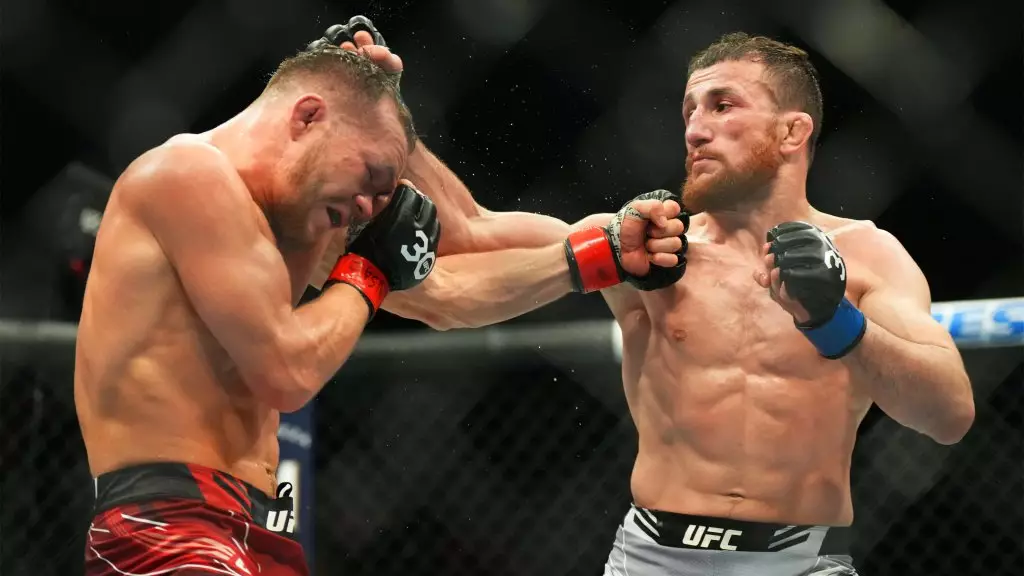Recently, Sean O’Malley has drawn significant attention in the UFC bantamweight division by accusing current champion Merab Dvalishvili of harboring fears regarding a potential matchup with Umar Nurmagomedov. O’Malley, who himself recently lost the bantamweight title to Dvalishvili, made these claims on his “TimboSugaShow” podcast following a notable Fight Night event where Petr Yan bested Deiveison Figueiredo. O’Malley suggests that Dvalishvili’s hesitation to fight Nurmagomedov reveals a deeper psychological aspect within the sport—insecurity crafted through the competitive landscape.
Following Yan’s impressive victory, both Dvalishvili and Nurmagomedov are now embedded in a web of callouts and competition that could define the future of the division. O’Malley’s declaration of Dvalishvili’s fear points to the psychological undercurrents that often influence fighter behavior. While fear may seem like an inappropriate label in such a combative sport, the stakes are high. Every fight carries potential repercussions for career trajectory, marketability, and legacy. Nurmagomedov stands out as a formidable opponent; his style contrasts sharply with that of Yan, presenting a unique challenge that Dvalishvili might not feel prepared to tackle.
Tim Welch, O’Malley’s head coach, also weighed in on the matter. He suggested that Dvalishvili’s reign as champion may not contribute positively to the excitement of the bantamweight division. Responses from coaches and former fighters often provide an interesting insight into the fighter’s mindset. Statements like Welch’s reveal a tension not only among the fighters but also within the coaching community regarding what constitutes an exciting matchup. It raises questions about how fight styles influence perceptions of excitement—Dvalishvili is known for his grinding, methodical approach, which while effective, may lack the explosive thrill that fans and analysts often crave.
Going forward, the bantamweight division is ripe for discussions fueled by O’Malley’s assertions. The potential fight scenarios involving Dvalishvili, Nurmagomedov, and Yan could shape narratives that either propel the division into new heights or drag it into indecisiveness over selected matchups. The interplay between psychological factors, fan expectations, and fighter readiness is crucial for both competitors and the promotion itself. If Dvalishvili continues to evade challenges posed by Nurmagomedov, his credibility as a champion may be called into question. As competitive athletes, their reputations are significantly tied to their willingness to face diverse opponents—an essential component of being recognized as a true champion.
In essence, O’Malley’s pointed remarks bring to light the tension and drama that rides beneath the surface of the bantamweight division. With fighters like Nurmagomedov waiting in the wings, every decision made by Dvalishvili will echo throughout the community—impacting not only their careers but also the collective excitement that drives MMA fans. The dynamics of fear, challenge, and entertainment continue to fuel conversations within the UFC, ensuring that the bantamweight division remains a focal point of intrigue and competition.

